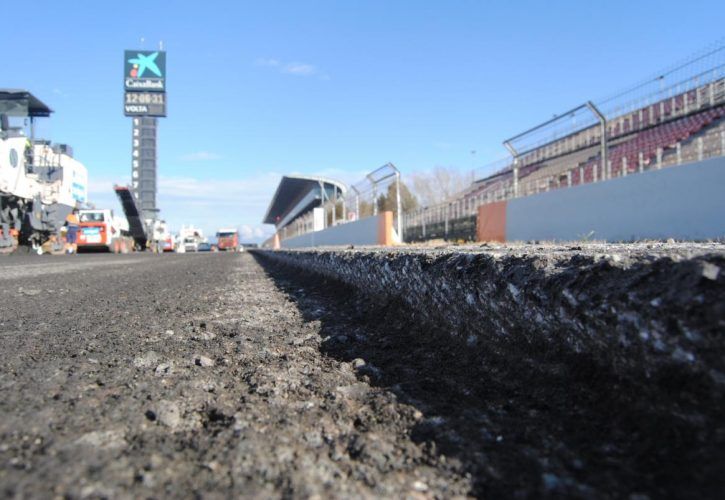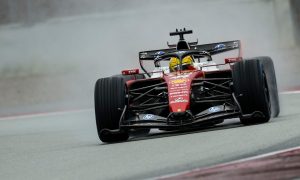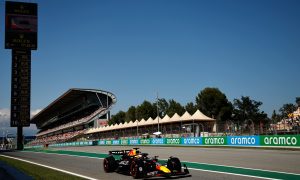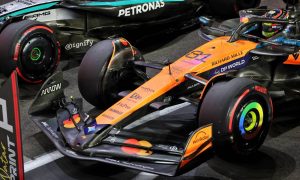
Pirelli's Mario Isola believes F1 teams may face inconsistent running conditions in the first few days of pre-season testing following Barcelona's resurfacing.
The Circuit de Catalunya is currently carrying out an extensive resurfacing of its track following a demand from MotoGP which threatened to drop the venue from its calendar if its required changes - which also include an extension of Turn 13's run-off area - were not implemented.
Pre-season testing for F1 kicks off on February 26, but Pirelli will send several engineers to Barcelona next week to gauge the track's surface and gather data.
"They [circuit officials] told me that the target is to make a Tarmac that is similar in terms of roughness to the old one," Isola told Motorsport.com.
"It is clear that it is not possible to have a new Tarmac that is exactly the same, but that was the target.
"Usually we measure the Tarmac roughness on Wednesday before each event. The idea is that next week we send a couple of engineers to measure the Tarmac to compare the old one with the new one.
"I know the circuit is planning to run many cars between when they finish the work and the start of the pre-season test to try to stabilise it as you have a lot of track evolution at the beginning because you have some oil, some bitumen and so on.
"There are some treatments you can do, like high-pressure water, and there are some machines that you can clean a little bit the first layer that is greasy.
"It is probably true that the first day of testing, or maybe couple of days, there will be a lot of evolution but then we should have consistent conditions."
Pirelli has yet to define the three tyre compounds which shall be allocated to teams for this year's Spanish Grand Prix, which takes place in May.
Barcelona's resurfacing will likely complicate the manufacturer's choice as Isola explains.
"The problem is that maybe we need to reconsider the allocation because we select three compounds on each event depending on the Tarmac roughness, layout and the energy that's going through," he said.
"We have a database and we can select compounds based on all this information.
"Obviously if you have a complete change of Tarmac, like Sepang [in 2016] - they resurfaced the circuit and it was completely different from the past.
"Sepang was one of the most aggressive circuits and we had the opportunity to go one step softer after resurfacing.
"Jerez was the same, last year they resurfaced in October and we went there in October with F2 and GP3.
"Before the race we sent the engineers to measure the roughness, completely different, much smoother.
"We moved the allocation one step softer and it was not enough. Tarmac can make a big difference."
Gallery: The beautiful wives and girlfriends of F1 drivers
Keep up to date with all the F1 news via Facebook and Twitter






